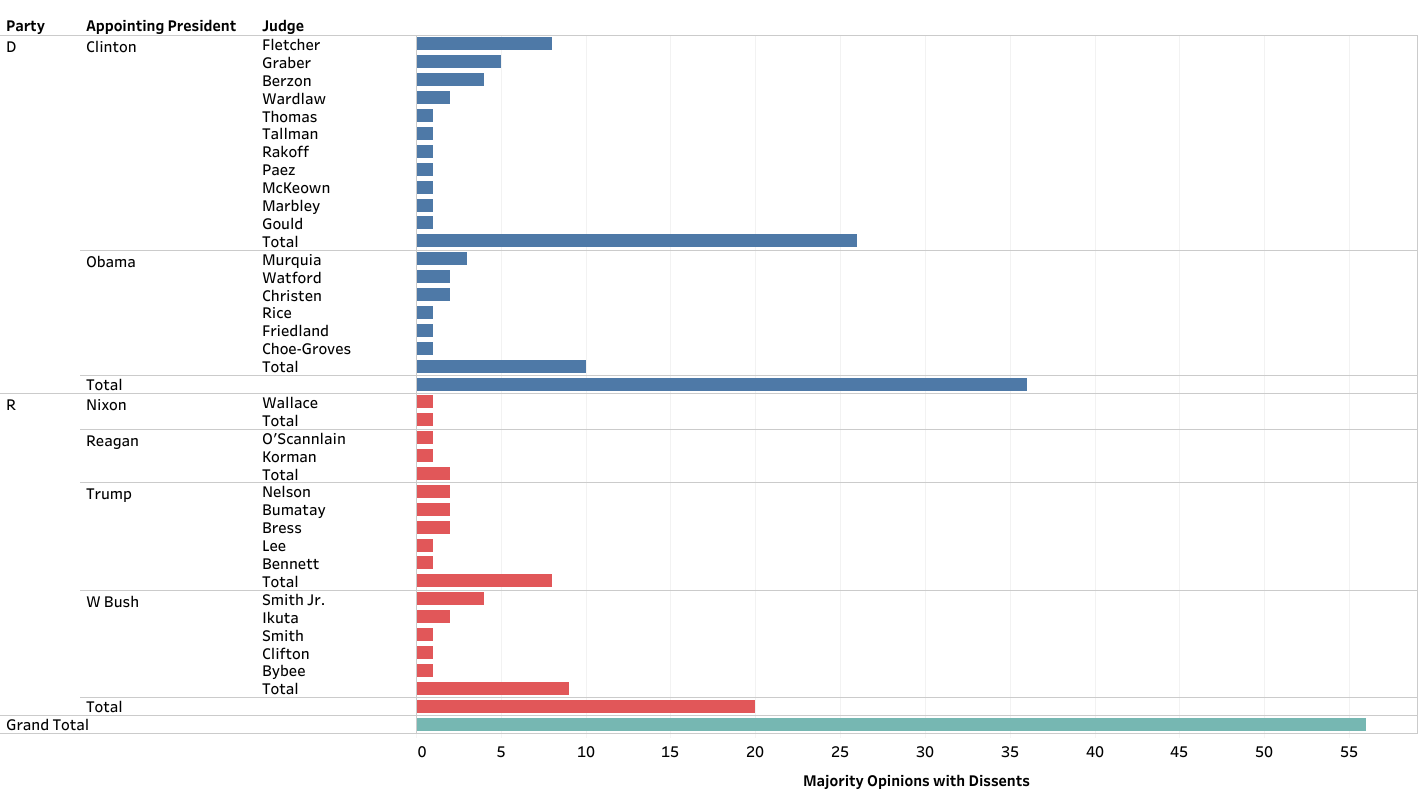
(Photo by David Lat)
Ed. note: This article first appeared on The Juris Lab, a forum where “data analytics meets the law.”
The Ninth Circuit is the largest judicial circuit in the United States in terms of population it encompasses. It also has more judges than any other circuit.

Reasoning, Tool Calling, And Agentic Systems In Legal LLMs
Domain-specific AI provides accuracy and reliable legal reasoning.
It has historically been recognized as a liberal circuit. Along this line, former President Donald Trump railed against the Ninth Circuit and Judge Tigar in particular for ruling against his border policy.
Along with calling Judge Tigar “a disgrace” and “an Obama judge,” Trump said the Ninth Circuit was “really something we have to take a look at because it’s not fair” and “[e]very case that gets filed in the Ninth Circuit we get beaten.” Trump was also able to appoint many judges on the Ninth Circuit moving it farther away from its liberal past. This post takes a look at the interaction of judges on the Ninth Circuit through dissents.
Epstein, Landes, and Posner in their book The Behavior of Federal Judges argue that the party of a judge’s appointing president tells a lot about dissenting behavior. Most importantly, they argue that judges of one party are most likely to dissent in a mixed panel with judges of another party. Looking at opinions from Court Listener from 2019 through the present, the majority authors on the Ninth Circuit who have had dissents against their opinions are as follows.


Skills That Set Firms Apart
Legal expertise alone isn’t enough. Today’s most successful firms invest in developing the skills that drive collaboration, leadership, and business growth. Our on-demand, customizable training modules deliver practical, high-impact learning for attorneys and staff—when and where they need it.
[Note: subtotals for all columns are provided below each metric.]
Judge Fletcher had the most dissents against his opinions with eight. Of judges nominated by Republican presidents, Judge Milan Smith, Jr. had the most dissents against his opinions with four. Of the 56 total dissents that majority authors faced, 36 were against judges appointed by Democrats and 20 were against judges appointed by Republicans. More judges also dissented against judges appointed by President Clinton than against judges appointed by any other president.
Next a look at the dissenters:

[Note: several dissents were against per curiam opinions where there was no majority author.]
Judges appointed by Republican presidents dissented more than judges appointed by Democrats by a margin of 39 to 33. Judge Callahan, a President George W. Bush appointee, dissented the most at six times. The Democratic nominee with the most dissents was Judge Owens with four. More judges appointed by President Clinton dissented than judges appointed by any other president.
Finally a look at the relationship between parties of the appointing president of the majority and dissenting author and the frequency of dissents.

Both Republican and Democratic nominees dissented four more times against judges appointed by presidents of the opposing party. Since judges appointed by Republicans had fewer dissents in total, their rate of dissenting against judges appointed by Democrats was higher at 60% than for judges appointed by Democrats, which was at 54.5%. These numbers show that while judges in the Ninth Circuit dissent more frequently against opinions by judges nominated by presidents of the opposing party, the disparity is not enormous and that judges in this circuit are comfortable dissenting against judges nominated by presidents of the same party as well.
Adam Feldman runs the litigation consulting company Optimized Legal Solutions LLC. For more information write Adam at [email protected]. Find him on Twitter: @AdamSFeldman.